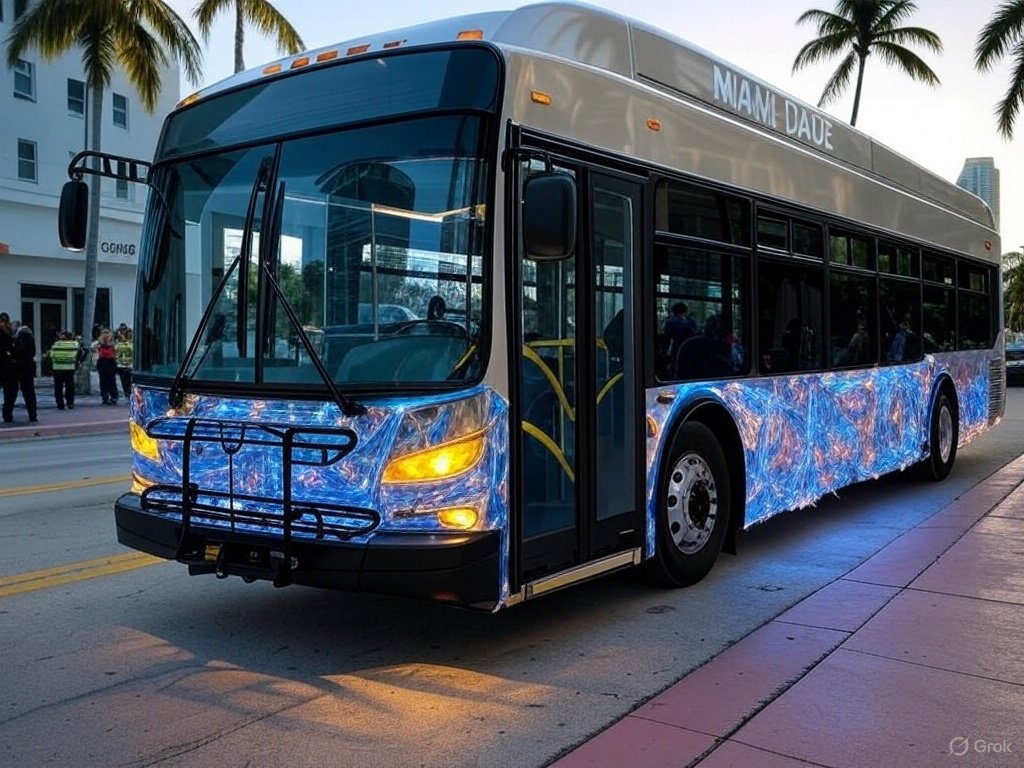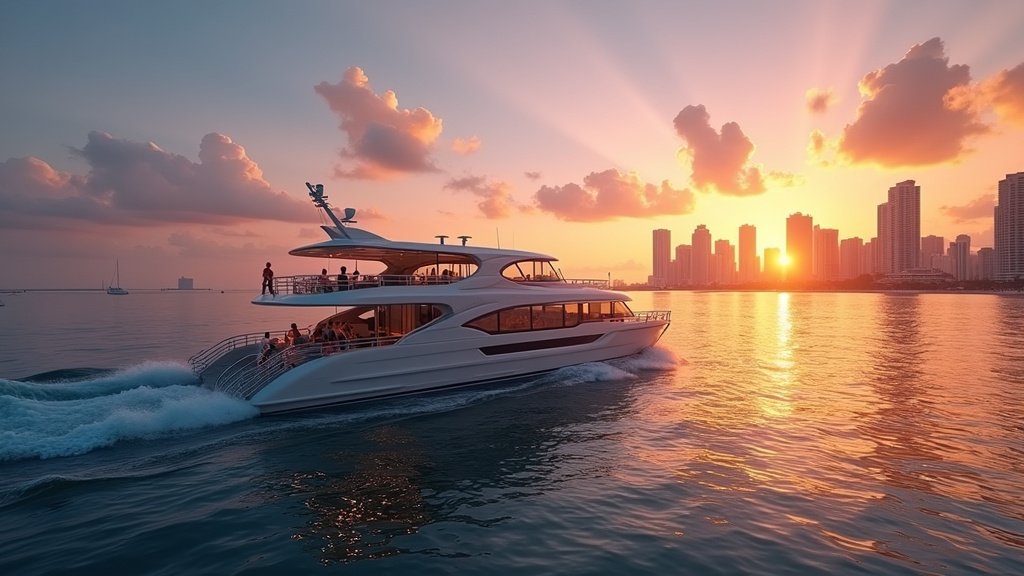1 | A Green Dream Stalled in the Depot
When Miami-Dade County inked a $72 million deal in 2019 to buy 75 battery-electric buses from California start-up Proterra, officials touted quieter rides, lower emissions, and big savings on diesel and maintenance. Fast-forward to February 2025 and the reality is stark: on a typical weekday, only five to seven electric buses leave the yard; the rest sit waiting for parts, software patches, or warranty work. WUSF
Neighboring Broward, which bought 42 of the same buses, has fared even worse—zero electric coaches were in service for much of February. Combined, the counties sank $126 million into vehicles and chargers that are now poster-children for the pitfalls of early-stage EV procurement. WUSFWUSF
2 | What Went Wrong? Three Pain Points
| Pain point | How it unfolded | Evidence |
|---|---|---|
| High breakdown rate | Proterra buses in Broward failed every 600 miles—7× more often than aging diesel coaches. Miami-Dade reports similar patterns. | WUSF |
| Parts & software shortage | Proterra filed Chapter 11 in Aug 2023, pausing warranty service and freezing its supply chain. | Miami Today News |
| Uncertain successor support | Phoenix EV bought Proterra’s assets in Jan 2024, but county memos warn the firm “lacks the financial capability” to honor full warranties. | Miami-Dade CountyMiami-Dade County |
3 | By the Numbers: From Purchase Order to Parking Lot
| Metric | Miami-Dade | Broward | Total |
|---|---|---|---|
| Buses ordered | 75 | 42 | 117 |
| Price (bus + chargers) | $72 M | $54 M | $126 M |
| Avg. buses in daily service (Feb 2025) | 5–7 | 0 | 5–7 |
| Breakdowns per 1,000 mi | 11.7 | 12+ | — |
| Warranty coverage left | 2-yr*, subject to Phoenix deal | Negotiating | — |
*Warranty shortened under March 2025 commission agreement with Phoenix. Miami-Dade CountyMiami-Dade County
4 | Financial Fallout: Savings Turned Sunk Costs
County budget writers once predicted $237,000 in lifetime maintenance savings per bus over diesel models. Miami-Dade County Instead, Miami-Dade spent:
- $5.15 M extra to secure a stop-gap warranty with Phoenix. Miami Today News
- $1.8 M on rental diesels to backfill failed EV service hours (FY 2024-25).
- Unknown millions in overtime as mechanics cannibalize buses for parts.
Add lost environmental benefits: the sidelined fleet would have cut 10,500 tons of CO₂ and 30 tons of NOₓ annually if fully deployed, county climate staff estimate.
5 | Riders Feel the Pinch
- Schedule gaps: Routes 77 and 31—both earmarked for zero-emission service—ran with 12- to 20-minute headway gaps in March.
- Accessibility hit: Liberty City and Goulds, two low-income areas promised quieter, cleaner buses, still rely on 12-year-old diesels.
- Public perception: “It’s not fair,” rider Wendell Morrison told reporters. “The elderly can’t get to the stops; it’s hot; nobody listens.” WUSF
6 | County’s Recovery Roadmap
6.1 Cut-Losses, Keep Learning
In March commissioners grudgingly approved a supplemental agreement: accept just 69 of the original 75 buses, shorten warranties, and pay Phoenix a one-time $5.15 million to ensure parts flow. Miami-Dade County
6.2 Diversify Suppliers
- 100 New Flyer Xcelsior CHARGE NG buses ordered in 2024; 17 delivered so far, all compatible with existing chargers. WUSF
- Lessons learned: no more single-supplier deals; contracts now require escrowed spare-parts stock and open-source diagnostics.
6.3 Build for Electric from the Ground Up
The South Dade Transit Operations Center, a 20-acre, 270-job facility opening late 2025, will house the New Flyer fleet and feature modular battery bays, on-site micro-grid, and flood-resilient design. Miami-Dade County
6.4 Pursue Federal & Legal Relief
Miami-Dade joined a multi-agency claim in Proterra’s bankruptcy to claw back warranty funds. Staff are also lobbying the FTA for “make-whole grants” covering stranded assets.
7 | Inspector General Flags Oversight Gaps
An April 2024 Office of Inspector General report blasted the original procurement for bypassing change-order procedures and failing to pre-approve price escalations. Future bids must clear a new Contract Risk Committee with transit, finance, and legal reps. Miami-Dade Inspector General
8 | Can Electric Still Succeed Here?
Hallandale’s BYD Win
Nearby Hallandale Beach replaced five gas shuttles with nine BYD e-buses in 2024 and reports 100 % uptime after 10 months. WUSF
National Trends
- Los Angeles: 240 New Flyer and BYD buses hitting 85 % fleet availability.
- Seattle: 40 Proterra-built trolleys sidelined—but Gillig battery coaches show 93 % uptime.
Analysts say reliability hinges on vendor maturity and parts networks, not the propulsion tech itself.
9 | What Riders Should Expect in 2025-26
| Date | Milestone | Impact |
|---|---|---|
| Q3 2025 | 30 New Flyer buses enter BRT service | 20-mile zero-emission corridor in South Dade |
| Q4 2025 | Phoenix parts depot opens in Medley | Faster turnaround on Proterra repairs |
| Early 2026 | Real-time “Green Fleet” dashboard launches | App shows which trips run electric |
If timelines stick, officials project 45–50 electric buses in daily service by mid-2026—still shy of the 75 originally promised but enough to cut diesel mileage 15 %.
10 | Lessons for the Next Wave of Transit Electrification
- Bet on OEM depth, not just headline specs. Established builders like New Flyer or Gillig weather supply shocks better than venture-backed newcomers.
- Bake in diagnostic transparency. Open-data APIs let third-party shops compete for repairs when OEMs falter.
- Stage purchases. Smaller pilot orders limit exposure and create performance benchmarks before scaling.
- Secure local parts inventory. A six-month spares cache is now mandated in Miami-Dade RFPs.
- Pair buses with purpose-built depots. Retrofitting diesel garages proved costly; South Dade’s new center is wired for megawatt charging from day one.
11 | Bottom Line
Miami-Dade’s electric-bus saga shows how quickly a climate-friendly investment can stall when procurement shortcuts meet fragile supply chains. Yet the county isn’t abandoning electrification; it’s rebooting it—with stricter contracts, diversified vendors, and a $240 million South Dade depot designed around battery tech.
For now, though, most of the $72 million Proterra fleet sits silent behind chain-link fences—a cautionary tableau for transit agencies nationwide racing to meet zero-emission mandates. The takeaway is clear: going green is about more than cutting tailpipes—it’s mastering the fine print that keeps wheels, and electrons, reliably turning.





